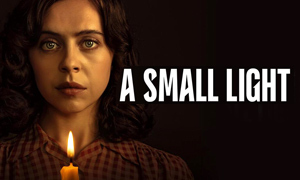Free State of Jones: History vs. Hollywood
| REEL FACE: | REAL FACE: |
Matthew McConaughey
Born: November 4, 1969 Birthplace: Uvalde, Texas, USA | Newton Knight
Born: 1837 Birthplace: Jones County, Mississippi, USA Death: February 16, 1922, Jasper County, Mississippi, USA (natural causes, possible heart attack) |
Gugu Mbatha-Raw
Born: April 21, 1983 Birthplace: Oxford, Oxfordshire, England, UK | Rachel Knight
Born: March 14, 1840 Birthplace: Macon, Bibb County, Georgia, USA Death: February 11, 1889, Soso, Jones County, Mississippi, USA |
Christopher Berry
Birthplace: Texas, USA | Jasper Collins
Born: November 1, 1827 Birthplace: Jones County, Mississippi, USA Death: August 19, 1913, Union, Jones County, Mississippi, USA |
Keri Russell
Born: March 23, 1976 Birthplace: Fountain Valley, California, USA | Serena Knight
Born: 1838 Birthplace: Mississippi, USA Death: 1923, Mississippi, USA |
Wayne Pére
Born: November 8, 1961 Birthplace: USA | Colonel Robert Lowry
Born: March 10, 1830 Birthplace: South Carolina, USA Death: January 19, 1910, Brandon, Rankin, Mississippi, USA |
Sean Bridgers
Born: March 15, 1968 Birthplace: Chapel Hill, North Carolina, USA | William Wesley Sumrall
Born: March 1839 Birthplace: Mississippi, USA Death: June 29, 1911, Rotan, Texas, USA |
Thomas Francis Murphy
Born: 1953 Birthplace: Dayton, Ohio, USA | Major Amos McLemore
Born: August 23, 1823 Birthplace: USA Death: September 14, 1863, Ellisville, Jones County Mississippi, USA (gunshot) |
Why did Newton Knight initially join the Confederate Army?
When the state of Mississippi seceded from the Union in January 1861, many Mississippians were opposed to the decision. Mississippi's Declaration of Secession did not reflect the views of many of the small family-owned farms and cattle herders living in Jones County. It was a decision that primarily reflected the planters' interests. When the American Civil War began in April 1861, anyone who opposed the state's new Confederate government was deemed a traitor and a coward. Immediate death was often the penalty for those who refused to join the Confederate Army. The Free State of Jones true story reveals that Newton Knight enlisted in the army in the early fall of 1861. The Free State of Jones book author Victoria E. Bynum believes that Knight did not necessarily enlist out of fear of conscription but rather because he just wanted to be a soldier. -Mississippi History Now
Did Newt's friend Jasper leave the army because he was upset over the passing of the "Twenty-Negro Law"?
Yes. Fact-checking Free State of Jones confirmed that Private Jasper Collins (portrayed by Christopher Berry in the movie) put down his weapon and abandoned the Confederate Army after the passing of the "Twenty-Negro Law", which stated that plantation owners who had more than twenty slaves were exempt from fighting. Like many others, Jasper believed that the poor were dying for the desires and greed of the rich, stating, "This law...makes it a rich man's war and a poor man's fight." -Mississippi History Now
Is Newt's nephew Daniel based on a real person?
No. The Free State of Jones book author Victoria E. Bynum said that Daniel (Jacob Lofland), the character Newton Knight (Matthew McConaughey) tries to protect in battle, is at best a composite of various 7th Battalion men who were killed at the Battle of Corinth. Like in the movie, the battle and its casualties deepened the disillusionment that was growing in many of the soldiers.
What made Newton Knight desert the Confederate Army?
After serving in the Confederate Army for only a few months, the real Newton Knight was furloughed by General Braxton Bragg in order to go home and be with his dying father, Albert Knight. Then on May 13, 1862, he returned to the army, enlisting as a private alongside his friends and neighbors in Company F of the Mississippi Infantry's Seventh Battalion (he would later state that he returned only to work as an orderly to care for the wounded and sick, as shown in the movie). In November 1862, he went AWOL (Absent Without Leave) when he learned that the Confederate cavalry had taken his family's horses. He set out on a 200-mile journey back home to Jones County, avoiding Confederate patrols along the way who were looking for deserters. -Mississippi History Now
The Confederacy had implemented a corrupt "tax in kind" system that allowed them to raid people's homesteads and take whatever they wanted in the name of the war effort, often leaving the families starving. In researching the Free State of Jones true story, we learned that some of the things they took included food, horses, chickens, meat, cloth and pigs. -Smithsonian.com
Is Lieutenant Barbour based on a real Confederate soldier?
No. Lieutenant Barbour in the movie, who raids the homesteads in Jones County, is a fictional character portrayed by Bill Tangradi. Author Victoria E. Bynum conveyed that Lieutenant Barbour is likely a composite of two or more of the six or so Confederate officers who had run-ins with the Knight Company. He was also created to represent the Confederate soldiers who carried out the "tax in kind" system, which allowed soldiers to pillage homesteads in the name of the war effort, often leaving the residents destitute. As with Newton Knight's family in the movie, the wives and children of the fathers who were away fighting were usually the ones left starving.
Why was Jones County more disloyal to the Confederacy than other areas?
While fact-checking the Free State of Jones movie, we learned that Jones County, Mississippi had only a 12 percent slave population, fewer than any other county in Mississippi. This is the main reason for its heightened disloyalty to the Confederacy. Newton Knight's skillful leadership and the independent tribal spirit of the people helped as well. -Smithsonian.com
Is fugitive slave Moses Washington based on a real person?
No. Portrayed by actor Mahershala Ali, the escaped slave Moses Washington is a fictional character. His inclusion in the movie represents the fact that deserters like Newton Knight collaborated with slaves during the Civil War. It also implies that Newton Knight himself likely had friendships with other black men and women besides his relationship with Rachel. Yet, we don't know whether Knight collaborated with a man similar to Moses. -Renegade South
Was the real Newton Knight ever taken prisoner by the Confederates?
Though it's not shown in the movie, Newt's friends later testified that he was indeed taken prisoner and tortured in early 1863 when he refused to return to the Confederate Army. The army also destroyed everything he owned, including his mules and horses, leaving his family destitute. -Mississippi History Now
Did Rachel really help pass information to Newton Knight and his fighters?
Yes. While they were hiding out in the swamps, sympathizers and local slaves, most notably Rachel, helped to supply them with information and food. At the same time, Confederate Colonel Robert Lowry (portrayed by Wayne Pére in the movie) was leading the charge to crush the rebellion, hunting the men with packs of vicious dogs and hanging ropes. -Smithsonian.com
Did Newton Knight and his fighters really stage a surprise attack outside a church?
Yes. According to author Victoria E. Bynum, an ambush appears in several accounts of the Free State of Jones story passed on by family members.
Did Newton Knight's wife Serena stay with him after he began an interracial relationship with Rachel?
Yes. Serena Knight was still living with Newt in 1880, years after Rachel, a former slave of Newt's grandfather, had started giving birth to children believed to be fathered by Newt (they would have a total of five children together). Serena herself was the mother of nine of Newt's kids (only one child is shown in the movie). She did not move out of the household until sometime between 1880 and 1900. During the first five years following Rachel's death in 1889, Newt fathered two kids with Rachel's daughter from another man, Georgeanne. The Free State of Jones book author Victoria E. Bynum suggests that this may have been what finally made Serena leave the household. She remained in the Knight community, however, moving in with her daughter Mollie and Mollie's husband Jeffrey (Rachel's son by another man). -Renegade South
Did Newton Knight and his wife Serena ever divorce?
No. While investigating the Free State of Jones true story, we learned that Serena and Newton never divorced. After they separated, Newton entered into a controversial common law marriage with Rachel, a former slave. As stated above, Serena remained on the 160-acre farm, moving in with her daughter Mollie and son-in-law Jeffrey. -Smithsonian.com
Did Newton Knight kill Confederate Major Amos McLemore?
Though there is no hard proof, it is widely believed that Newton Knight and two accomplices shot dead Confederate Major Amos McLemore on October 5, 1863 while McLemore was visiting the home of Confederate Representative Amos Deason. The movie's version of Newt shooting McLemore during a skirmish and then strangling him after he fled into a church is fiction. Like in the film, Knight's reason for killing McLemore was to stop him from leading efforts to round up local deserters for execution. Amos McLemore's death is known as being the opening shot that sparked the insurrection against the Confederacy, spearheaded by Mississippi Unionists and Confederate deserters. -Renegade South
Did Newton Knight's fighters really overthrow Confederate forces in Jones County?
Yes. In the spring of 1864, the Knight Company declared loyalty to the Union and overthrew the Confederate authorities in Jones County, Mississippi. In the process, they crippled the "tax in kind" system of the Confederacy and redistributed Confederate supplies. They also vowed to defend each other's farms and homes. According to the legend, the county subsequently became known as the Free State of Jones. The members of the Knight Company engaged in their final skirmish on January 10, 1865 at Sal's Battery (sometimes spelled Sallsbattery), driving away Confederate infantry and cavalry. The Confederacy fell three months later. -Smithsonian.com
What happened to Newton Knight after the Civil War and Reconstruction?
With former Confederates resuming positions of power, the Klan at his heels, and the passing of Jim Crow segregation laws, the real Newton Knight withdrew from white society and lived a quiet self-sufficient life with Rachel and his mixed-race family on his homestead on the Jasper County border. Much of his time was spent doting on the growing number of children and grandchildren who surrounded him. It has been said that he died of a heart attack in February 1922 while dancing on the porch of his grandaughter's cabin. Per his instructions, he was buried next to Rachel who had passed away in 1889; thus defying the law at the time that said whites and blacks could not be buried in the same cemetery. -Smithsonian.com
Was Newt's great-grandson, Davis Knight, really put on trial for marrying a white woman?
Yes. Despite appearing white, Davis Knight was put on trial in 1948 for marrying Junie Lee Spradley, a white woman, two years earlier. Davis Knight had been charged with the crime of miscegenation. The Mississippi law stated that a person could be labeled as "Negro" if they had one-eighth or more African ancestry. However, most Mississippians believed anyone with even a drop of African blood in their genealogy to be "Negro."
Davis Knight was convicted of miscegenation on December 17, 1948. However, he did not serve his five-year prison sentence. The state supreme court overturned the lower court's decision, citing the state's failure to prove beyond a reasonable doubt that Davis Knight had one-eighth or more "Negro" blood, which in the state's eyes would define him as African American. -The Free State of Jones book
Free State of Jones Movie Trailer
Watch the movie preview that highlights Newton Knight's story.
Link-to-Learn More:
- Renegade South Blog by The Free State of Jones Book Author Victoria E. Bynum
- Official Free State of Jones Movie Website







